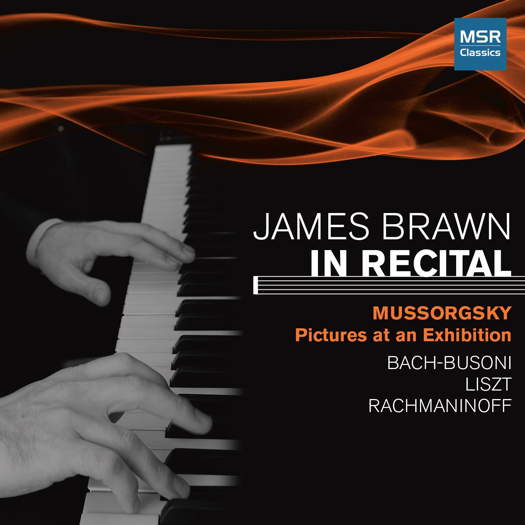 SPONSORED: CD Spotlight. True Command - James Brawn plays Bach, Liszt, Musorgsky and Rachmaninov - recommended by Andrew Schartmann.
SPONSORED: CD Spotlight. True Command - James Brawn plays Bach, Liszt, Musorgsky and Rachmaninov - recommended by Andrew Schartmann.
All sponsored features >>
 DISCUSSION: What is a work? John Dante Prevedini leads a discussion about The performing artist as co-creator, including contributions from Halida Dinova, Yekaterina Lebedeva, Béla Hartmann, David Arditti and Stephen Francis Vasta.
DISCUSSION: What is a work? John Dante Prevedini leads a discussion about The performing artist as co-creator, including contributions from Halida Dinova, Yekaterina Lebedeva, Béla Hartmann, David Arditti and Stephen Francis Vasta.
ARTICLES BEING VIEWED NOW:
- Régine Crespin
- Hector Berlioz
- Ruth Railton
- Marián Varga
- Profile. A Very Positive Conductor - Paul Bodine talks to Los Angeles Opera's Music Director Designate, Domingo Hindoyan
THE ART OF THINKING

GORDON ANDREW R brings to a close his
two month long 'Life under Quarantine' series
The last day of the 'Life under Quarantine' series
A great book, now sadly little known is The Art of Thinking by Ernest Dimnet (1866-1954). It was quite popular in its day - circa 1929 - and still reads quite well now. Dimnet spoke of two men who were held captive for some months. Let him explain:
Maroncelli, in his additions to Silvio Pellico's Mie Prigioni, relates how Pellico and himself being deprived of books, pen and paper, during the early months of their captivity, easily managed to give food to their minds. They would, sometimes singly, sometimes together, go over what they remembered, one day about history, another day about literature, another day again about philosophy. Supplementing each other it was surprising how much more they could remember than they had imagined. Gradually their knowledge, from being a useless chaos, became orderly and ready. Their minds simultaneously grew freer. - The Art of Thinking
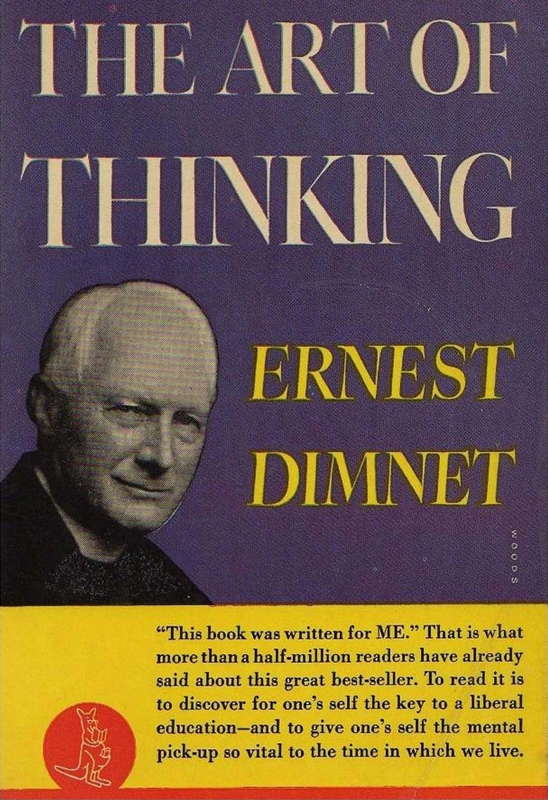
The Art of Thinking by Ernest Dimnet
Such was their good use of their incarceration. I can tell you now, that these little quarantine essays of mine, which began on 18 March, have been my conscious attempt to do the same. I have tried to recall what I know and place it in some kind of interesting order. Many know far more, some remember less of what they know, but, in our quarantine, it might have been a good idea to bring to the surface the thoughts, ideas, informations, suggestions, inspirations and ideals that we have stored away in our minds. These jottings are the contents of mine. I hope you have enjoyed these mini-essays.
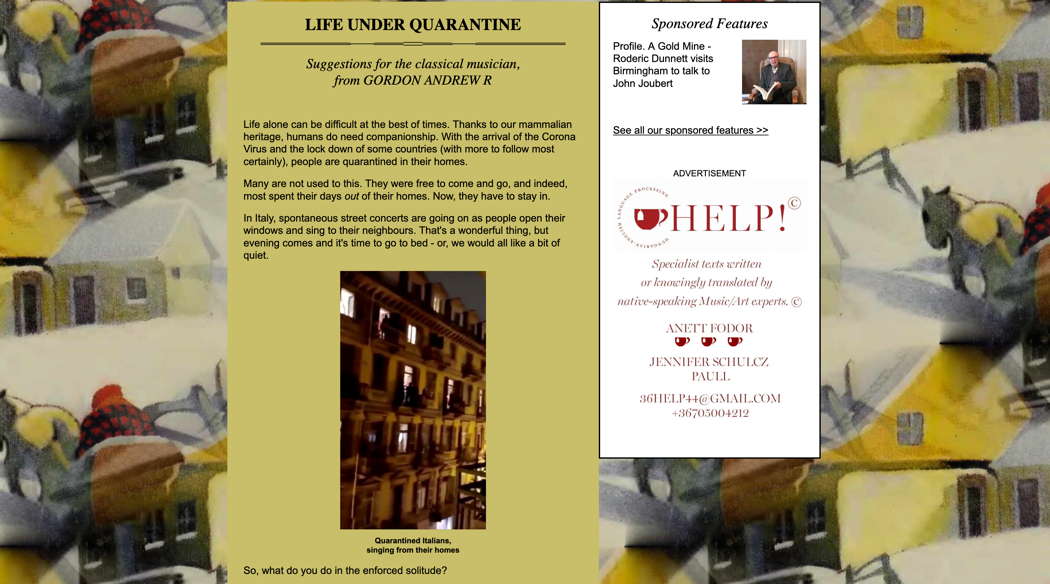
The Life under Quarantine series, March-May 2020 at Classical Music Daily, by Gordon Andrew R
Buckminster Fuller wrote: 'I have a feeling that in music, man may be able to deal with the new life much more effectively than science ...'
One musician who seems intent on fulfilling Fuller's prognostication is Neil Slade. Actually, he is more than a musician, as he also has worked and studied in various aspects of brain research and so combines art and science. His music is varied and in various genres, and he was nominated for an Emmy.
He is dedicated to the idea that neurobiology's practical techniques can trigger 'pleasurable bodily sensations, dramatic increases in intelligence and creative ability, pronounced feelings of well-being and harmony ...'
One of his primary techniques is detailed in his interesting book Tickle your Amygdala which uses a simple mental visualization to achieve its effects.
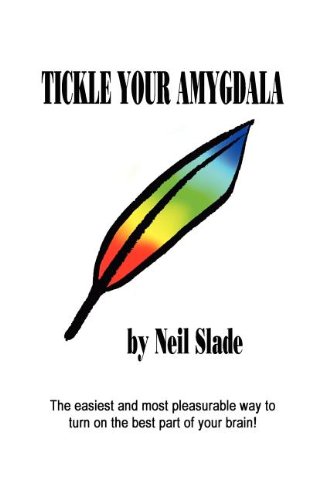
Tickle your Amygdala by Neil Slade
He has a Youtube channel with many videos and numerous interviews explaining his ideas.
I admire Mr Slade for combining art and science for a fruitful contribution to our betterment.
Envoi
My health does not allow me to travel, but, my mind is free to range over the whole Universe.
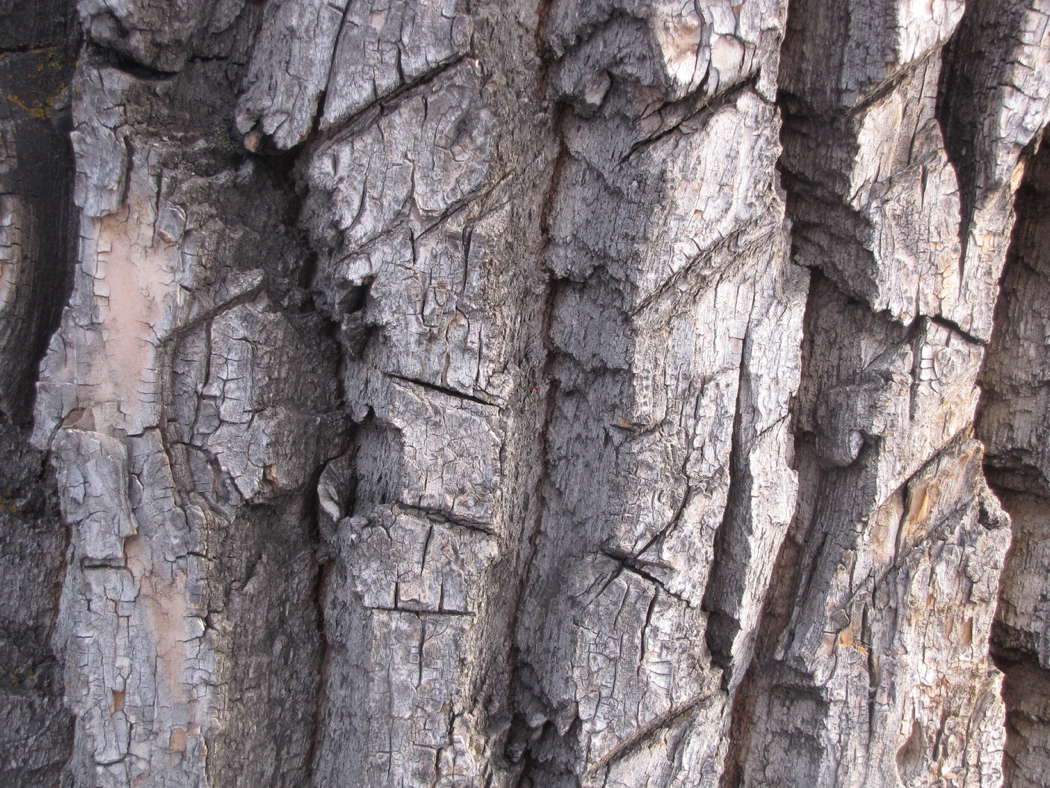
Bark from Inglewood Bird Sanctuary in Canada. Photo © 2011 Gordon Andrew R
I can sit in a chair and imagine flying by the dual suns of Sirius. I can swoop past Andromeda and even the 'shoulder of Orion, or the Tannhäuser Gate'. If need be, I can climb the highest mountain on Mars or wander the toxic landscape of Venus and wish that Edgar Rice Burroughs' Princess lived there instead.

A Hubble Space Telescope/ESA image by Akira Fuji from 2002 showing the Orion constellation (right) and three bright stars forming the so-called Winter Triangle - Sirius (bottom), Procyon (top left) and Betelgeuse (top right)
But, these are places in the physical Galaxy (well most of them). I can also roam the worlds of myth and fiction. I can stand and watch the sunrise upon Minas Tirith. I can listen to Sancho Panza harass the Don. In the distance I might see Achilles battle Hector before the walls of Troy.
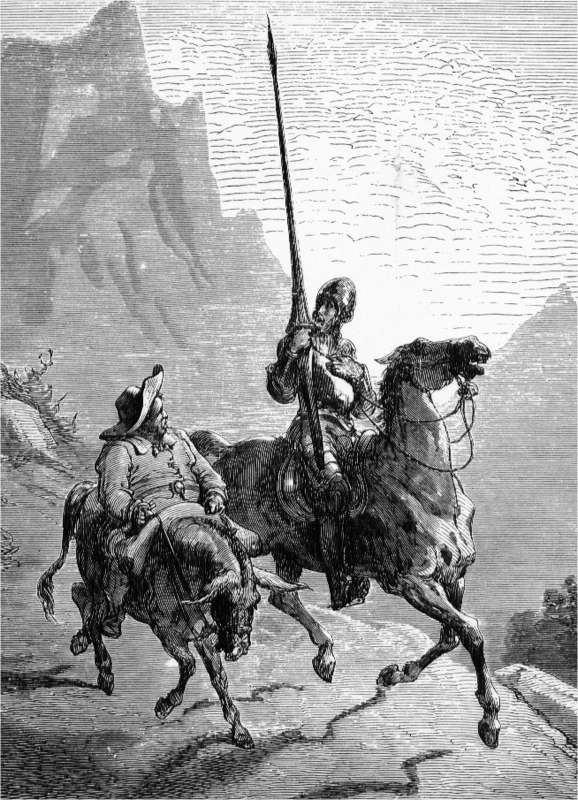
An 1863 illustration of Cervantes'
Don Quijote de La Mancha and Sancho Panza
by French artist Gustave Doré (1832-1883)
Or, my mind may stroll through the halls of history. I can imagine walking through the corridors of the Library at Alexandria and see myself examine a scroll of Posidonius' works. My mind can bring to reality the Fall of Constantinople (though it will make me sad). Perhaps I can converse with Franz Liszt, or Paderewski.
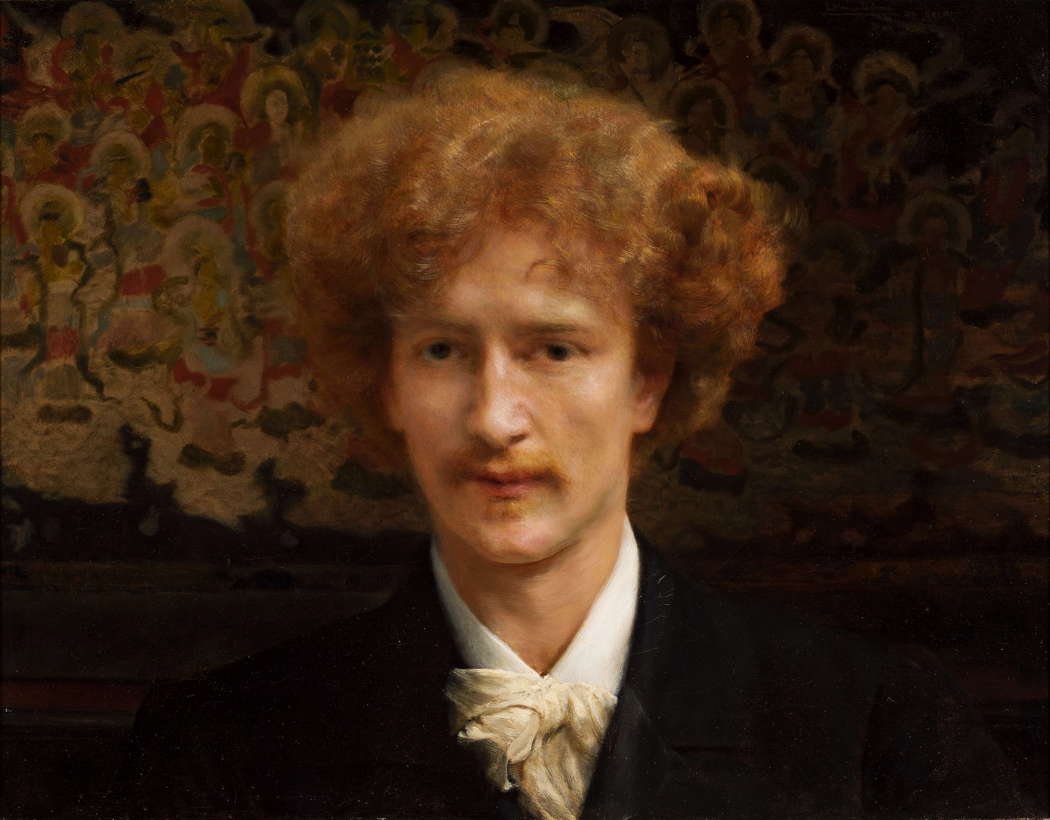
1890 portrait of Ignacy Jan Paderewski (1860-1941)
by Dutch painter Lawrence Alma-Tadema (1836-1912)
Or, my mind may wander through the halls of my own memory. I can imagine sitting in a concert hall and hear Rudolf Serkin present an imperial performance of Beethoven's Emperor Concerto — with an utterly magical transition to the last movement. Such is the power of our memories.
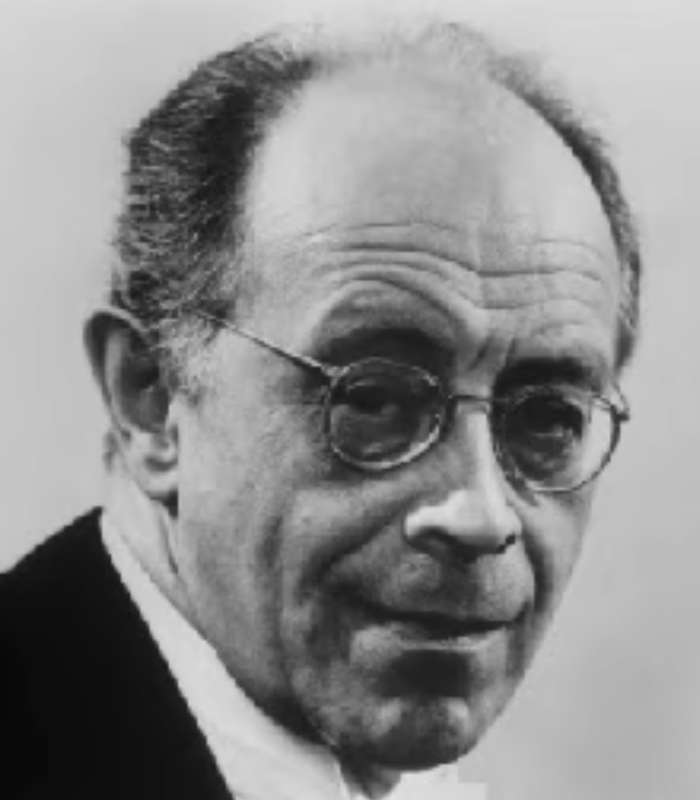
Bohemian-born American pianist Rudolf Serkin (1903-1991)
Our minds are free though our bodies are constrained by the quarantine. But, as the lockdown is lifted, please remember that your mind is still free to roam over the infinite Universe, the Multi-verses, the whole range of human imagination, and of course, the whole world of Music. Please let your heart soar and your voice sing.
Adieu.

The Rocky Mountains up close. Photo © 2012 Gordon Andrew R
Tiny Coda
I would like to thank the editor of Classical Music Daily, Keith Bramich, for his support and encouragement of this series. It has meant much more effort for him and I am deeply grateful.
Canada

READ THE WHOLE 'LIFE UNDER QUARANTINE' SERIES
READ THE SEQUEL: 'OPENING UP AFTER QUARANTINE'
FURTHER ARTICLES ABOUT COVID-19 AND CLASSICAL MUSIC

